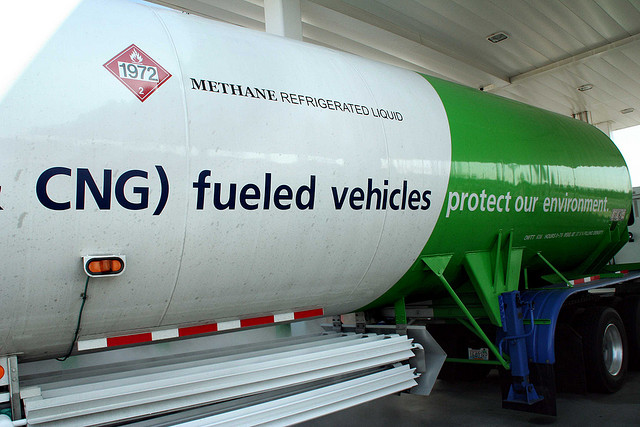The United States has more natural gas than any other country on earth. More than half of US households use natural gas to power their homes and appliances. So why are there not more vehicles powered my natural gas? It would make sense that we would look to the cleaneast and most abundent energy source we have to power our vehicles too.
Challenges in Natural Gas Vehicle Adoption
ShaleNOW.com takes an in-depth look at natural gas vehicle technology and highlights some of the challenges faced by automakers. The Natural Gas Coalition estimates there to be about 130,000 CNG vehicles currently on the road today.
Just like conventional vehicles, natural gas vehicles are powered by an internal combustion engine, but they use compressed natural gas instead of gasoline. In addition to the engine, these vehicles are equipped with another tank where the compressed gas is stored. The car still has a fuel injection system, and it can run on gasoline or diesel, as well, if the driver chooses to turn the stop drawing fuel from the CNG tank and switch to the other tank.
One of the main downsides of CNG vehicles is the sheer size of CNG tanks, which are quite bigger than gasoline tanks and are usually mounted in a car’s trunk, reducing its cargo capacity to a great extent. Also, these CNG tanks are quite expensive to manufacture, which contributes largely to the high production costs of natural gas vehicles. As far as range is concerned, they may have an edge over other alternative fuel vehicles, as they can go over 200 miles before they need to be refueled, but it’s still far from the capabilities of gasoline-powered cars, which can travel about 350 miles on a full tank. This, along with the fact they are not zero-emission vehicles, makes them less environmentally friendly than electric and hybrid cars. However, they are much cleaner than conventional vehicles, as their CO2 emission levels are about 20% lower than cars powered by diesel or gasoline.
It seems likely we will see significant advances in natural gas vehicle technology in the very near future.





